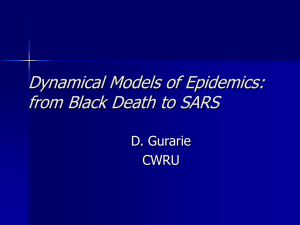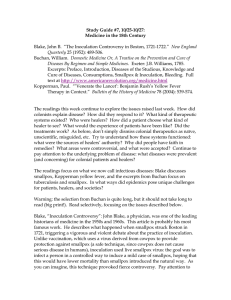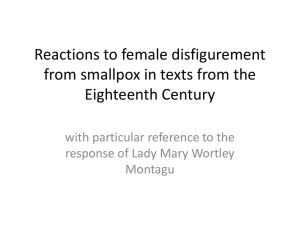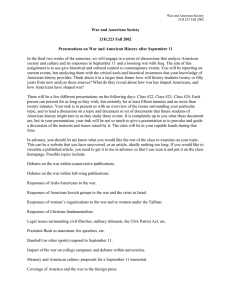Weekly Writing Assignment #7: Inoculation Debates
advertisement
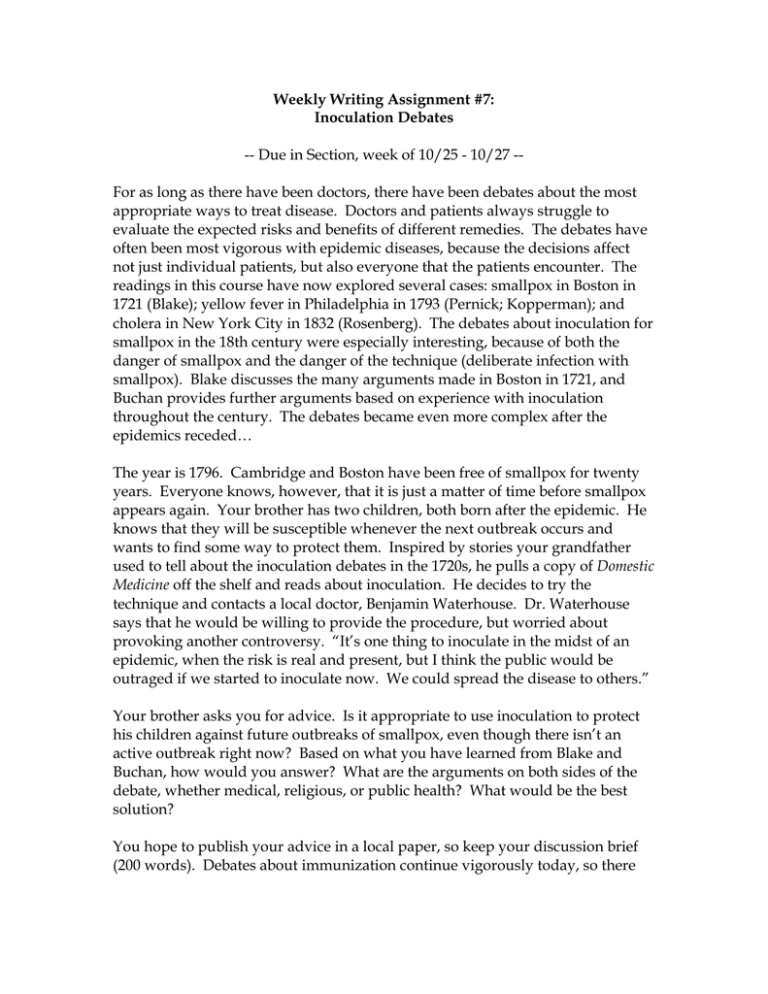
Weekly Writing Assignment #7: Inoculation Debates -- Due in Section, week of 10/25 - 10/27 -For as long as there have been doctors, there have been debates about the most appropriate ways to treat disease. Doctors and patients always struggle to evaluate the expected risks and benefits of different remedies. The debates have often been most vigorous with epidemic diseases, because the decisions affect not just individual patients, but also everyone that the patients encounter. The readings in this course have now explored several cases: smallpox in Boston in 1721 (Blake); yellow fever in Philadelphia in 1793 (Pernick; Kopperman); and cholera in New York City in 1832 (Rosenberg). The debates about inoculation for smallpox in the 18th century were especially interesting, because of both the danger of smallpox and the danger of the technique (deliberate infection with smallpox). Blake discusses the many arguments made in Boston in 1721, and Buchan provides further arguments based on experience with inoculation throughout the century. The debates became even more complex after the epidemics receded… The year is 1796. Cambridge and Boston have been free of smallpox for twenty years. Everyone knows, however, that it is just a matter of time before smallpox appears again. Your brother has two children, both born after the epidemic. He knows that they will be susceptible whenever the next outbreak occurs and wants to find some way to protect them. Inspired by stories your grandfather used to tell about the inoculation debates in the 1720s, he pulls a copy of Domestic Medicine off the shelf and reads about inoculation. He decides to try the technique and contacts a local doctor, Benjamin Waterhouse. Dr. Waterhouse says that he would be willing to provide the procedure, but worried about provoking another controversy. “It’s one thing to inoculate in the midst of an epidemic, when the risk is real and present, but I think the public would be outraged if we started to inoculate now. We could spread the disease to others.” Your brother asks you for advice. Is it appropriate to use inoculation to protect his children against future outbreaks of smallpox, even though there isn’t an active outbreak right now? Based on what you have learned from Blake and Buchan, how would you answer? What are the arguments on both sides of the debate, whether medical, religious, or public health? What would be the best solution? You hope to publish your advice in a local paper, so keep your discussion brief (200 words). Debates about immunization continue vigorously today, so there are clearly good arguments on both sides. If you mention specific material from the text, or use quotations, please provide page numbers.

